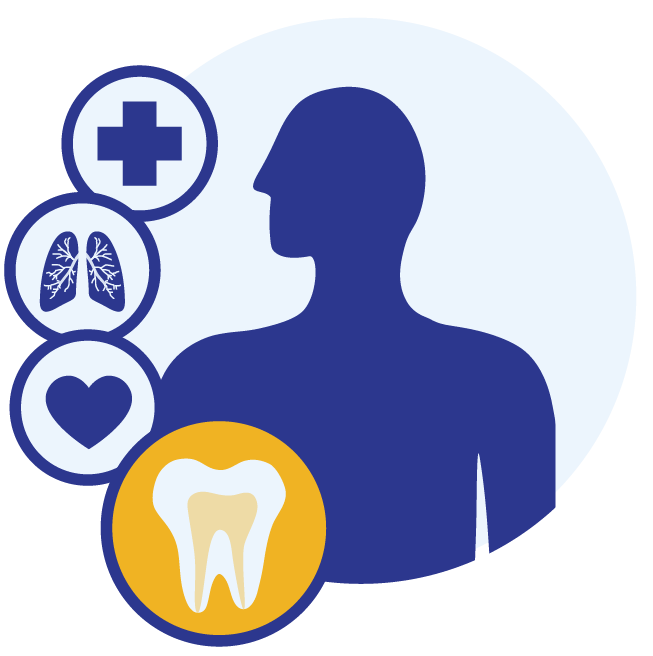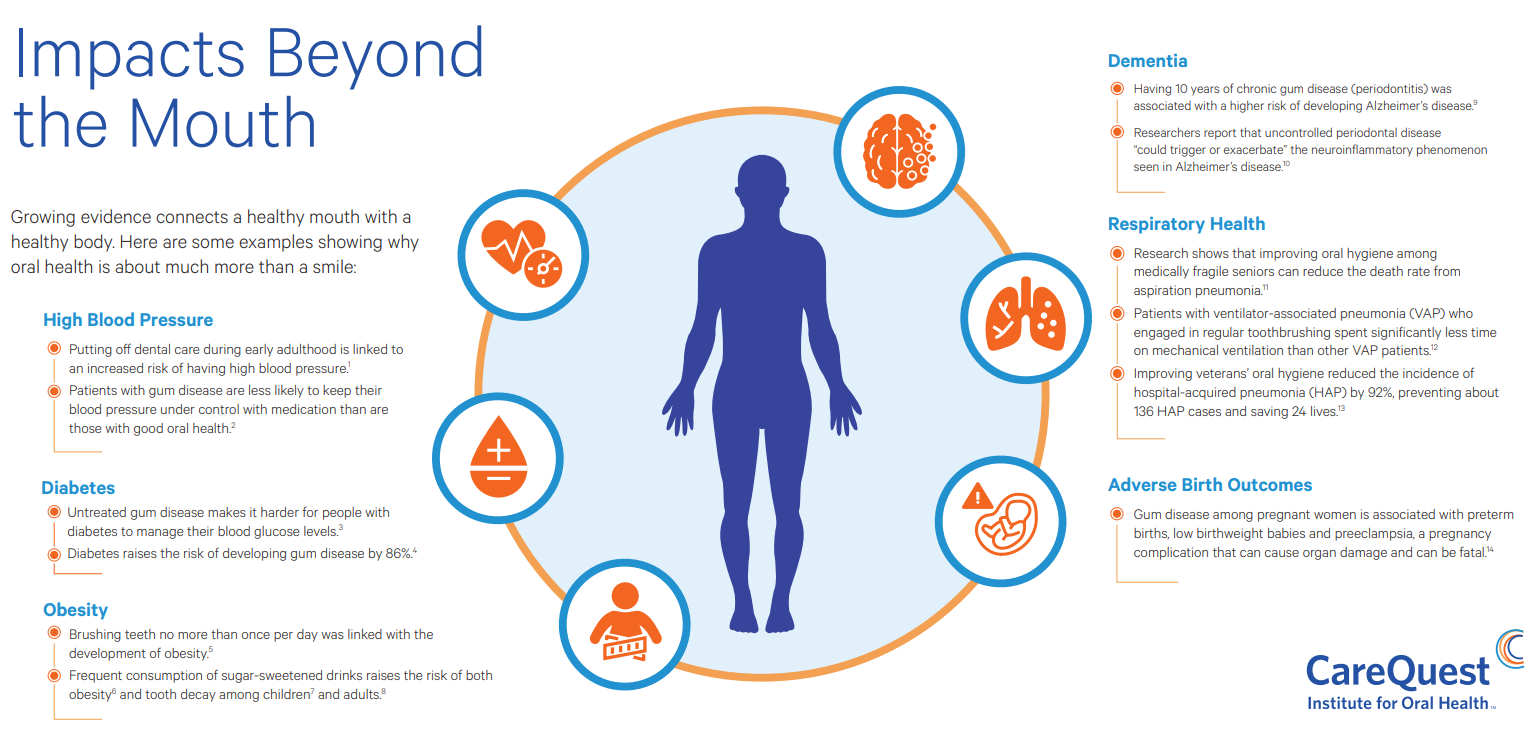Enter your email to receive the CareQuest newsletter:
Oral Health Is Health
Many chronic diseases – like diabetes and heart disease – are connected to poor oral health. From providers to payers, we all share the responsibility to support whole-person care—because better oral health leads to better overall health.

2-3x
40%
86%
27M

Cardiovascular Health & Oral Health
Emerging research has established a concerning link between oral health and heart issues. Gum disease, for example, can trigger cardiovascular problems and increase the risk of having a heart attack. Tooth decay and other oral infections in childhood can contribute to atherosclerosis (clogged arteries) in adulthood. Poor oral health, including gum disease, causes bacteria to grow in the mouth, these germs can enter our bloodstream and travel to our heart, which can cause inflammation. Oral bacteria has been linked to dangerous conditions affecting cardiovascular health, including infections of the heart lining, clogged arteries, and heart attacks.
While poor oral health may not be the sole cause of these threats, research shows other strong connections between our oral hygiene and heart health. Maintaining good oral health — and ensuring everyone has access to good oral health — can reduce these risks, protecting our heart and overall health.
Learn more about the link between cardiovascular health and oral health

Pregnancy & Oral Health
During pregnancy, oral health care is essential, yet often underutilized. Poor oral health during pregnancy is linked to preeclampsia (high blood pressure during pregnancy), preterm birth, and low-birth-weight infants.
Adequate pre- and postnatal care, better interprofessional communication between oral health and maternal health providers, and policies to expand Medicaid coverage could significantly improve these poor outcomes, especially for Black women.

Diabetes & Oral Health
There is a well-established and bi-directional link between diabetes and periodontal (gum) disease. Approximately 10% of the entire US population has diabetes (diagnosed or undiagnosed). While gum disease makes it harder for people with diabetes to manage their blood sugar, diabetes can increase your risk of developing gum disease by 86%.
The risk of developing both diabetes and periodontal disease is increased for patients with lower socioeconomic status, such as those who receive health care coverage through Medicaid.
Prioritizing oral health is a vital step in managing diabetes and improving overall well-being.
